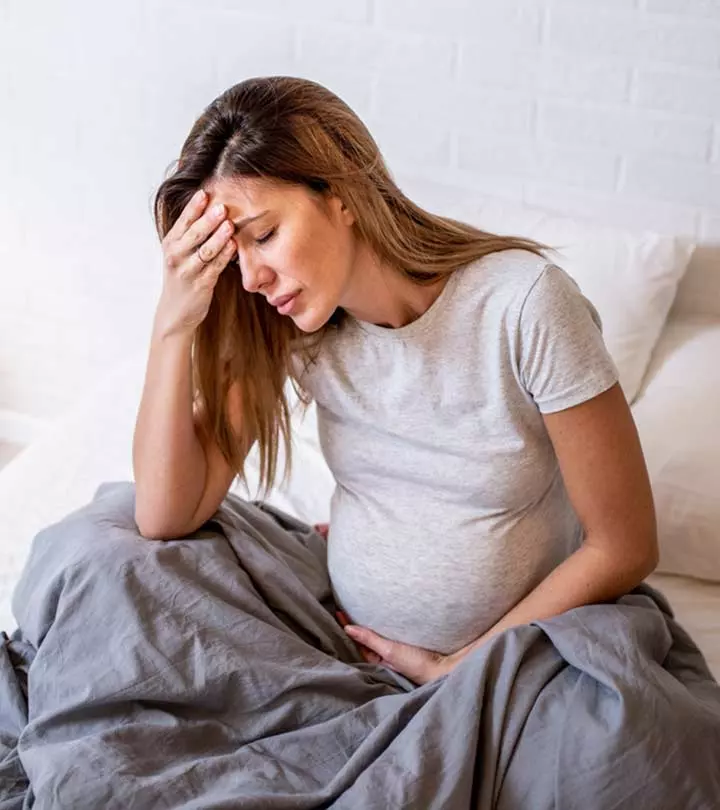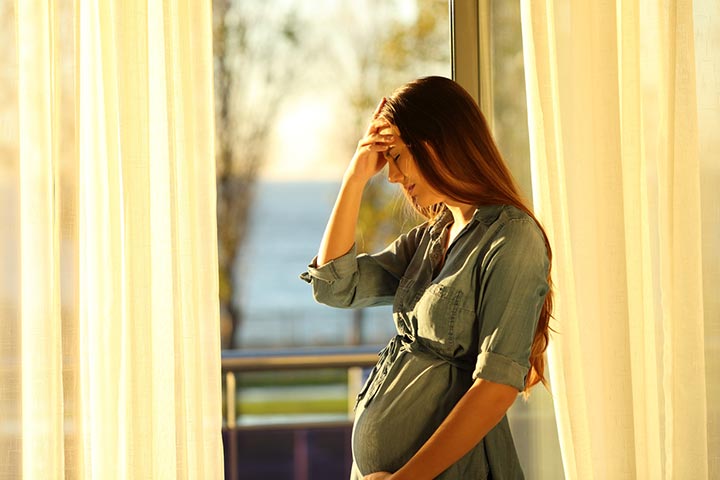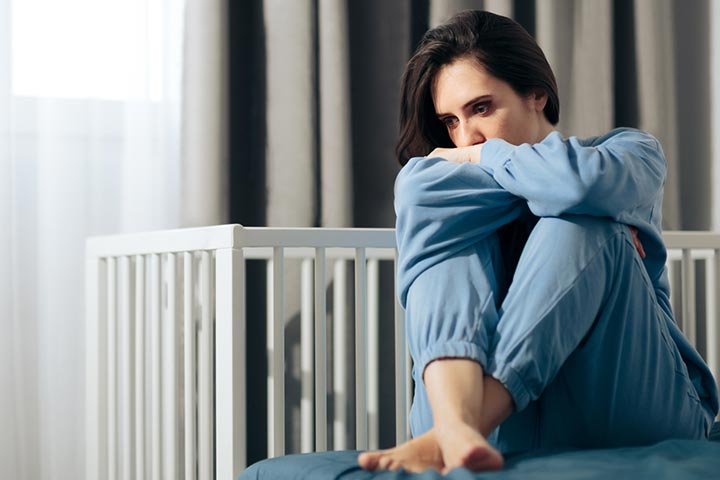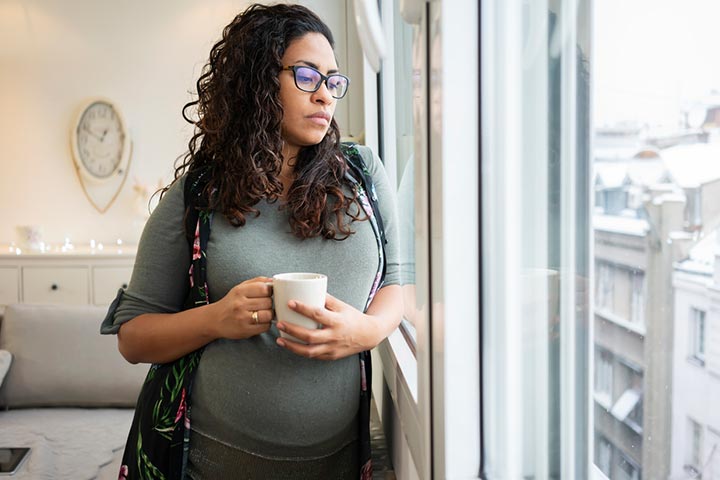
Image: iStock
Pregnancy can be one of the most exciting journeys and a time of stress. While you may have heard of postpartum pregnancy, it is also common for women to be depressed during pregnancy. And, research suggests that the rates are much higher in lower and middle-income countries (1).
Depression is a constant feeling of sadness or hopelessness, and it usually lasts for weeks or months. It is a mood disorder that affects the population and, most commonly, women in their reproductive years. There are several signs of depression during pregnancy, like changes in sleep, loss of appetite, and energy levels (2). If you’re curious to learn more, here is what you should know about depression during pregnancy:
What Causes Depression During Pregnancy?
Image: IStock
Pregnancy can bring in a lot of challenges. There are several reasons why a woman could be affected by depression when she is pregnant. Here are a few reasons why (3):
- If you have a history of premenstrual dysphoric disorder (PMDD) or depression.
- You live alone and have little or no social support.
- You are experiencing marital discord.
- Your age: younger women are at a greater risk.
- You aren’t confident or feel unsure about your pregnancy.
Can Pregnancy Cause Depression?
Image: IStock
Women can experience depression during pregnancy. Since our bodies go through several changes and stress during this time, it could trigger depression when carrying a baby. That said, not all women who are pregnant will be depressed. If you were depressed before you got pregnant, you might experience a return of the symptoms, or it may worsen once you’re pregnant (4).
Women depressed during pregnancy are likely to have postpartum depression, but this often goes unrecognized. It is also possible that your depression may return after childbirth. However, due to the stigma associated with depression, they may not open up about it. Plus, it’s common to neglect mental health during this time when physical well-being takes focus. Nonetheless, it’s important to speak to your healthcare provider about it before it worsens.
What Are The Signs Of Depression During Pregnancy?
Image: IStock
The signs of depression are almost the same during pregnancy as it is for the general population. But how often they occur or how long they last will differ from person to person. Here are some other clues that indicate the same (5):
- Feelings of not being good enough for the baby.
- Feeling pessimistic or disinterested in usually enjoyable activities.
- You have problems recalling information or incidents and concentrating.
- Lack of interest in prenatal care.
- Engaging in illicit activities like drug, alcohol abuse, or smoking.
- Excessively anxious about the child.
- Overeating or loss of appetite leading to decreased or inadequate diet.
- Feeling depressed for most of the day, for at least two weeks.
- Suicidal tendencies.
In What Ways Does Depression Impact Your Pregnancy?
Image: IStock
A mother’s health can be impacted by depression in several ways. Here’s how (6):
- Inability to take care of oneself. Pregnancy demands excellent care and a depressed mother is likely to push those needs aside. It is hard for depressed moms-to-be to follow recommendations, sleep or eat well. This could pose harm to them and the baby.
- Depression during pregnancy can put you at a greater risk of substance abuse that negatively impacts your baby and you.
- It restricts your bonding with your baby. Your baby can feel and hear things you say or think about. Feeling depressed during pregnancy can push you to feel detached from the baby, which may affect the development of a healthy connection.
What To Do When You Are Depressed During Pregnancy?
Image: IStock
It’s crucial to ensure that you feel happy when you are pregnant. There’s some hard work involved in preparing yourself for the new addition to the family. But your health comes first. Here are a few things you can do to manage your depression:
- Avoid the urgency of finishing every task right away. It can cause you to feel overwhelmed. Reduce your workload by cutting down the daily chores and focusing on activities that calm you down. Taking care of your health is taking care of the baby at this time.
- Speak about your concerns to your closest people. That can be from anyone you trust and depend on during this sensitive period. Ask for greater support, and you will often get it.
It’s good to avoid taking over-the-counter medicines to treat depression during pregnancy. Many people feel better with treatment, and this is why it is important to seek help from a professional. Several antidepressants can help you deal with it but speak to your doctor before taking them. Discuss all possible options and risks involved so your baby, and you do not suffer short or long-term consequences.
It’s essential to treat depression as early as possible so you can go through pregnancy at ease. You can also consider counseling or joining a support group for help. Did you deal with depression while you were pregnant? Do let us know your experiences in the comments section below.

















